We thought it was high time for the return of our author co-interview—and look at the pair we managed to bring together! Joanna Grochowicz had quickly become a favourite among readers of non-fiction, with her fascinating (and award-winning) dives into the experiences of Antarctic explorers of history. Cristina Sanders is new to the YA space, but her debut YA novel picked up the Tessa Duder Award and showcases a serious spirit of adventure.
But don’t just listen to us. Take it away, Joanna and Cristina!
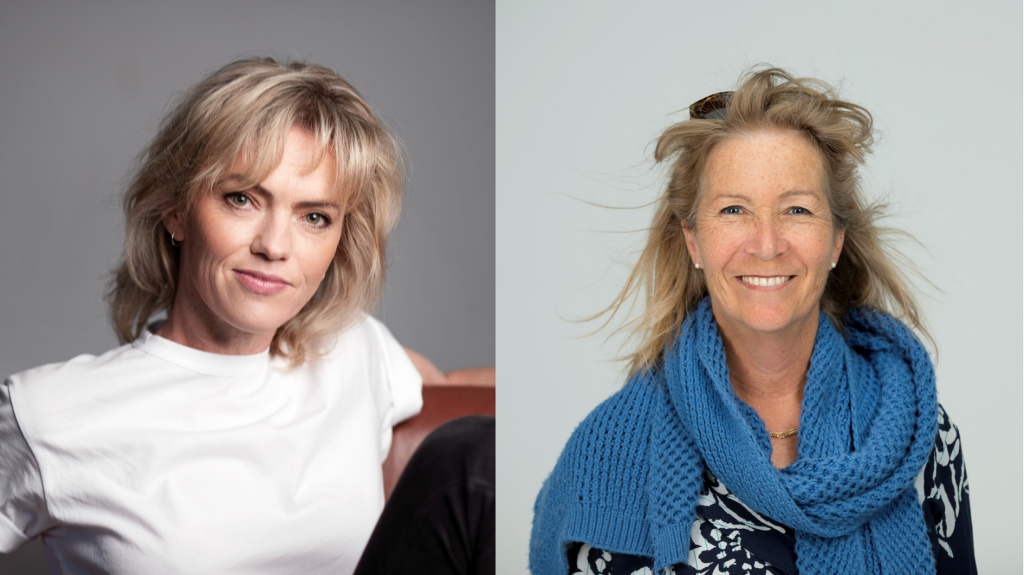
Joanna: We’re at opposite ends of the globe and at opposite ends of the day – you with a gin & tonic and me with a cup of morning coffee – but our writing interests are so aligned!
Cristina: Historic seafarers, extreme conditions, cold, group dynamics and relationships!
J: I love that I couldn’t get hold of you because you were at sea. What were you doing?
C: I’m a volunteer watch assistant on the Spirit of New Zealand. Just got back from a week at sea to find your book waiting for me, the Endurance on the cover looking very much like the Spirit of NZ, except we didn’t have the ice.
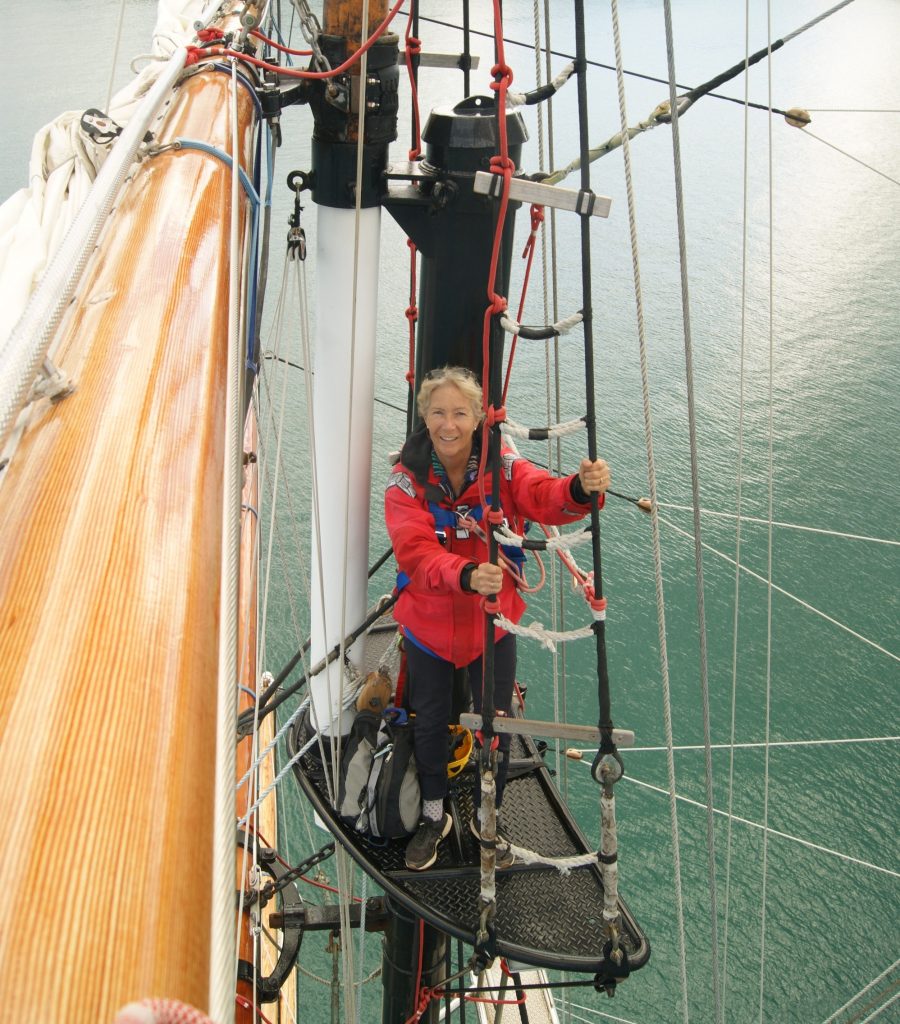
J: Seafaring tales and polar tales have always held huge appeal for me. This came from my Scottish Dad. He loved sharing stories of survival with us. What sparked your interest in seafaring?
C: I was late to seafaring. I’ve always loved the sea from the coast and grew up with stories of Irish and Cornish sailing ships, but sailing was something other people did. It wasn’t until I got into the early settlers’ stories for my research a few years ago that I wanted to know how it felt to sail on a wooden tub with 300 hundred people for four months across the world. I signed up for an ’adult coastal’ with the Spirit of New Zealand (absolutely not a wooden tub but it does have full on sails and lots of rigging to climb) and loved it so much I’ve become a regular volunteer. I hear salty tales in the crews’ mess that could keep me writing for decades.
J: The things we do in the name of book research!
It wasn’t until I got into the early settlers’ stories for my research a few years ago that I wanted to know how it felt to sail on a wooden tub with 300 hundred people for four months across the world.
C: You’re in England now, researching another polar expedition. How far will you go to feel your characters’ pain? Your descriptions of cracking ice must be real. Have you ever slept in a reindeer sleeping bag?
J: I do have a reindeer sleeping bag but not sure I could bear to sleep in it. It’s impossible to touch it without becoming covered in hundreds of hairs. How awful it would be to have it through everything in a tent – even the food. Not sure I’d eat pemmican bolstered with chunks of dogmeat as Amundsen and his men did. But this kind of detail can elicit a strong reaction in readers.
I loved the period details in Displaced. I think it adds so much richness to the story without necessarily being a feature. As much as I love the research phase, sometimes I think it would be so much quicker to produce work from my imagination.
C: It might be easier and quicker to produce work purely from the imagination, but where’s the fun in that? I’ve written two historical novels: in the first, Jerningham, I added dialogue and life to real characters but nothing contradicts the known history of colonial Wellington. In Displaced, I invented characters to inhabit a real world, so I had a lot more freedom with the story line. Strangely there was just as much research required because my invented characters still bought food (what did they eat? How did it taste? What did it cost?) and travelled (in a coach or wagon? What were the state of the roads?) and went to church (where? What denomination? Which hymns did they sing?).
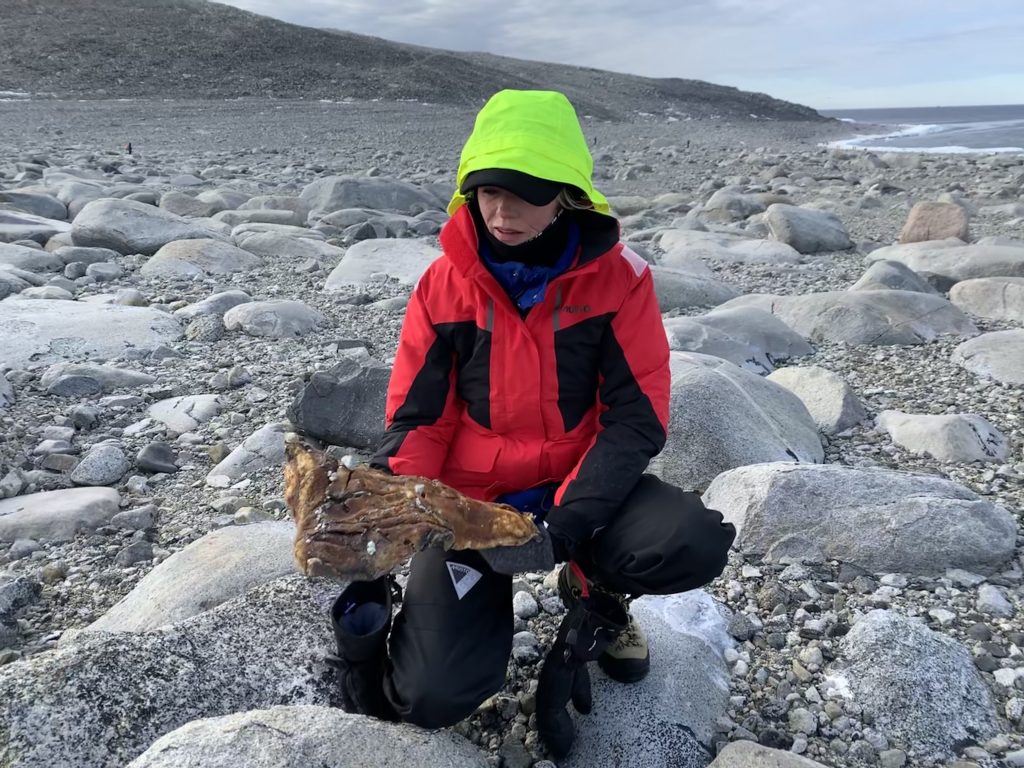
J: You introduced me to a new term ‘walking the book’. Tell me about what that means to you?
C: It’s a physical thing. I don’t think you can inhabit a world sitting on your bum. I wouldn’t fancy walking the book with Shackleton! But in Displaced my characters migrate on a tall ship into Ahuriri as it was before the 1931 earthquake – quite a different landscape. So I walk around with old maps, picture where the rivers flowed into the lagoon, feel the heat, imagine how the sewage would have collected and smelled. I took up tall ship sailing so I knew what it felt like to be at sea. My books are very geographical (I’ve got a thing for maps) so I check all my lines of sight. If I say you can see Ruapehu from Scinde Island, you can.
J: It’s definitely part of the process for me too. It was important for me to go to Antarctica and to undertake a Southern Ocean crossing to get that sense of emptiness and vastness. I think geographical elements anchor a story without necessarily being a feature. It’s like an artist underpainting a canvas to achieve depth. We take so much for granted when we read historical novels but all those details and texture take so much time to nut out. It’s a joy but so easy to disappear down the rabbit hole! Recently I’ve had a lovely time researching birch bark canoes. Very little of what I have found out will find its way into the story. Don’t you think research is a bit like an iceberg? Most of it is underwater! Only 10% ends up on the page. But without the 90% holding it up, it wouldn’t float.
I don’t think you can inhabit a world sitting on your bum. So I walk around with old maps, picture where the rivers flowed into the lagoon, feel the heat, imagine how the sewage would have collected and smelled.
C: I tend to get the big picture and then discover details of my characters as I go along. I quite like the surprises.
J: The surprises! Those transformative elements that spring from the subconscious, or when you stumble on something unexpected that revolutionises your approach. And best of all, random encounters with people who seem to appear at just the right moment. I’ve been incredibly lucky with the people I’ve met who have generously shared resources – like the granddaughter of James Wordie, Shackleton’s chief scientist. She gave me access to the most amazing material in her family’s private collection – and put me up for a couple of days.
C: I agree absolutely about people sharing their knowledge and resources. You end up with esoteric conversations about weird stuff that eventually fits perfectly into a pocket of text somewhere. I always find it very strange meeting people who know my characters, and have to keep reminding myself they are real and I didn’t make them up. And then they come up and wave at you.
Research is a bit like an iceberg. Most of it is underwater! Only 10% ends up on the page. But without the 90% holding it up, it wouldn’t float.
J: Do you ever find yourself hoping things will work out better for the characters in your books? In Into the White I found myself hoping desperately that Scott and his four companions would reach safety and yet I knew they did not. I hear it quite often from readers too – this idea that it just might be possible to avert tragedy.
Cristina: While writing about the Wakefields and the New Zealand company men in Jerningham, published last year, I fell a bit in love with the wild young adventurer as I drafted the book. It wasn’t until later I learned this bright and extraordinary young man ended up dead of alcoholism in an Ashburton poor house. Broke my heart. But I love the pathos of a tragic ending. I think Scott is so compelling because of his ending. So the answer to that is probably no. Are you ever tempted to rewrite history?
J: No, I’m scrupulously honest when it comes to the facts. I do write dialogue, which of course is ‘imagined’ or ‘recreated’ but I never invent facts.
C: I could never do non-fiction, I’m such a liar. If I don’t know something I throw in a diversion. Never ask me facts.
J: Mostly I’m terrified of getting it wrong so won’t put anything in my books that I cannot back up with documentary evidence. I feel a great responsibility to my readers and to the historical subjects and of course, their descendants.
I’m scrupulously honest when it comes to the facts. I do write dialogue, which of course is ‘imagined’ or ‘recreated’ but I never invent facts.
C: Shackleton’s story is relentlessly bleak. There is an occasional song and a pipe, but no thoughts of wife and children. Were you tempted to put in some light relief?
J: Actually I think the men often had laughs. They were a hardy bunch. They played cards, smoked and had a yarn and took the piss out of each other relentlessly. I think privately they worried about seeing families again but a bunch of blokes mucking in together tend not to dwell on subjects where they are emotionally vulnerable. They just get on with things.
C: You’ve written about Scott’s expedition, Amundsen and now Shackleton. I don’t suppose ‘My Fijian Beach Holiday’ is on the cards?
J: Ha ha! No don’t expect me to write any books set poolside in resorts! Don’t you find the most memorable holidays are the ones involving catastrophic events, dreadful experiences? The anecdotes keep you going for years. People love stories about other people undergoing extreme inconvenience. In the case of polar exploration, the stakes are slightly higher than lost luggage, but I think the appeal is exactly the same.
C: Well, as the optimist in the party once said (when I’d forgotten the firelighters and there was nothing to burn but the bible) ‘this will make a good story’.
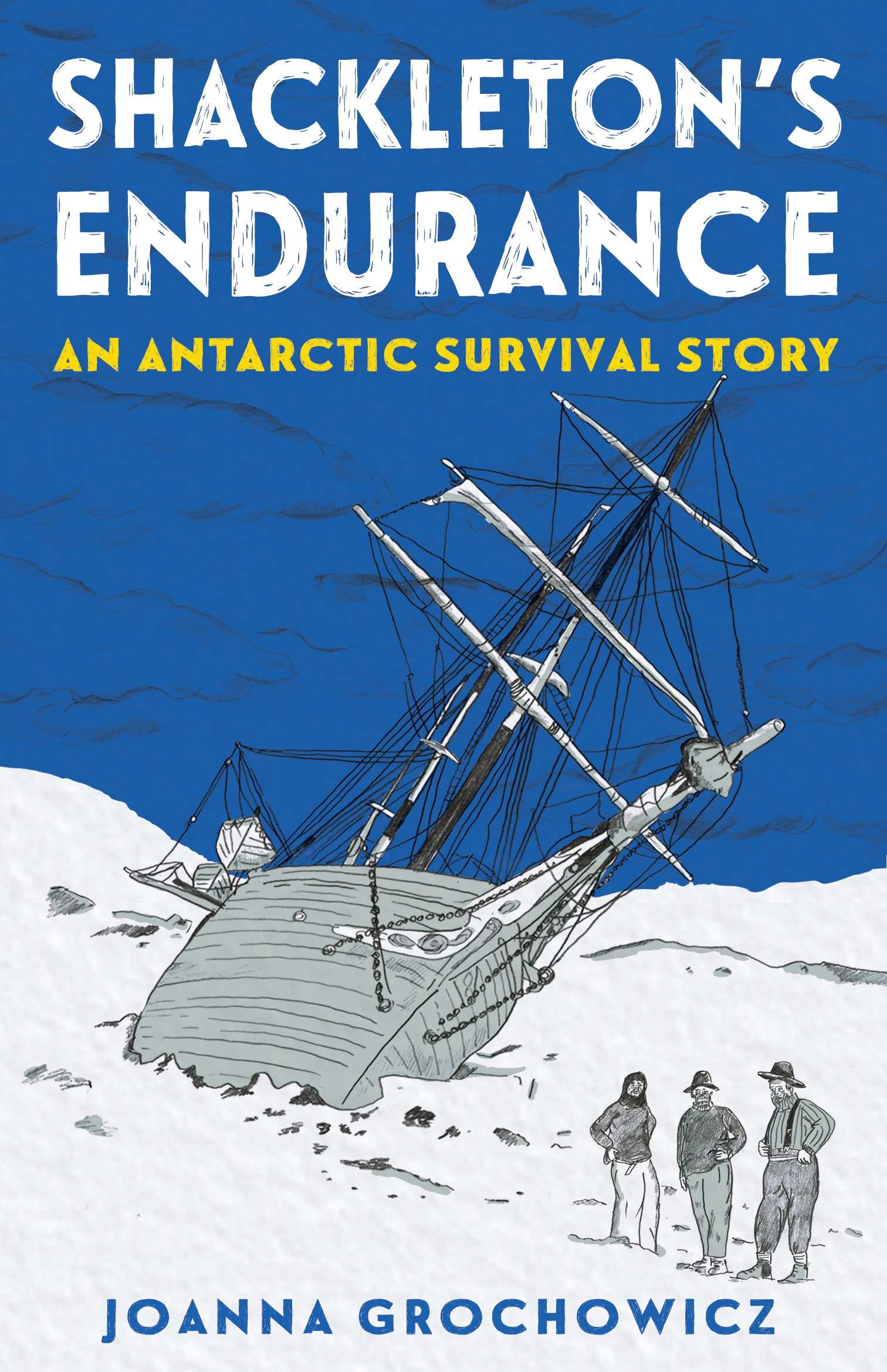
Shackleton’s Endurance: An Antarctic Survival Story
by Joanna Grochowicz
Allen & Unwin
RRP: $19.00
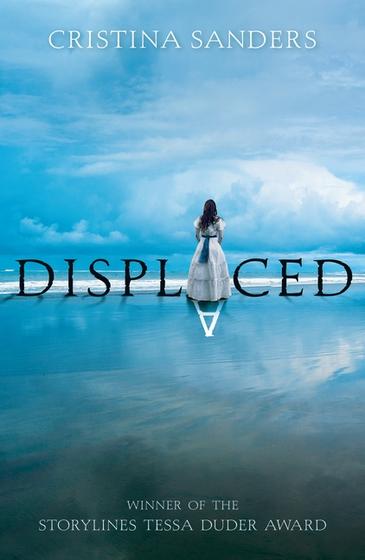

Joanna Grochowicz
Joanna Grochowicz is an author and polar historian. Fast-paced and exquisitely written, her novels of early exploration reveal in fascinating detail the human aspirations and tragedies that have shaped our understanding of the polar regions. Drawing on diaries, letters and expedition narratives from archives and personal collections around the world, Grochowicz brings to light new and often overlooked elements of heroic age exploration. Realistic portrayals of historical figures and the interplay of personalities lend her work a grittiness and authenticity that is not often present in historical writing for children and young adults.



